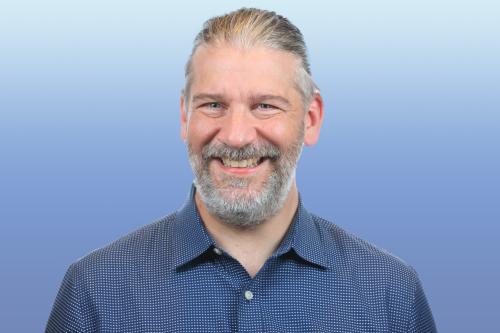Collaboration to Address Grand Challenges
Letter from the Executive Director, October 2023
Standards work is an inherently collaborative effort. When working with partners in the supply chain, be they customers or suppliers, the community seeks to come together to solve collective problems and make our ecosystem more efficient and effective. Some of the problems we try to address through standardization are modest and might, from the outside, seem almost trivial, while others go straight to the core of what we’re collectively trying to achieve. Many NISO initiatives have found worldwide applications in every library, on nearly every serial, in nearly every book, or embedded in nearly every website. It would be hard to imagine discovery systems without MARC records or Dublin Core metadata. The book and serial supply chains would be far less effective without identifiers like ISBNs and ISSNs. Circulation and order processing similarly need standards to be efficiently conducted. Standards not only affect how we do business but set the context for effective outcomes.
Few projects at NISO have been as large and as ambitious as the Cooperative Collections Lifecycle Project (CCLP). With more than 30 partner organizations engaged in the National Leadership for Libraries grant from the Institute of Museum and Library Services (IMLS), the project aims to include representatives from library organizations, content providers, and systems suppliers. If the project is to achieve its lofty ambitions, all parties will need to engage in collective efforts—from pooled availability information to shared collection holdings data to analytics and purchase agreements. NISO has a successful track record of doing just this, and the CCLP effort is an attempt at an even larger scale. Some of the fundamental ideas about how a library should function, what a collection could be, or how patrons find and retrieve their desired content will need to be reconsidered. Many large networks of libraries are exploring what it means to implement such systems. To operate well at scale and across diverse institutional partnerships, these efforts will—in part—require standardization.
Last month, we issued our second call for working group participants in what will be three rounds of groups to engage with specific elements of the project. This second cohort will focus on acquisitions, assessment/data analysis, and cataloging/metadata. The call for volunteers will remain open for a few more weeks. Engagement so far has been tremendous, with dozens of people already participating in the first three working groups, which are focused on collections development and selection, organizational strategy and governance, and infrastructure. The project has also established a steering committee and two separate leadership groups focused on technology and research. Our partners at Ithaka S+R have already conducted several case studies of relevant projects and are on track to deliver several more in the coming months.
Fundamentally, the project aims to build greater efficiencies in how libraries function when they work together. It’s widely understood that not all items will ever circulate and that some items are too broadly collected across multiple institutions. While examining those gaps and overlaps might yield some efficiencies at a single institution, when this process is conducted across institutions, we see lots of potential for redirecting resources toward building more diverse and inclusive collections. What areas might be receiving hardly any collections attention at all, and how might greater bibliodiversity improve access across all partner institutions?
The barriers to achieving this vision are significant. Change will not come easily, as many cherished notions of what “my institution” is and how it serves its unique community will need to expand. Many social and practical barriers will need to be overcome, from how collaborative decisions are taken to how funding is allocated across institutions. Yet, even with all these hurdles to overcome, the project has built momentum.
Last week, there was a public informational session about the project and its progress. The recording is available if you missed it. The project will be providing regular updates on its progress on the CCLP website. More information will be released, and at a quicker pace, as the project continues to grow and develop. Future public sessions will be planned for the winter, spring, and summer. We will also be providing project updates at conferences in the coming months. A final round of working groups will be announced toward the beginning of 2024.
Other NISO projects are also making significant progress. You can read more about them in the NISO Working Group Connection that was published last week. With so much activity, there’s a lot to stay abreast of in NISO’s program of work. New groups are regularly being launched, and working groups are coming together. We expect drafts of new specifications to be released for public comment this fall on several of the projects underway. Of course, we’re so appreciative of all those who are engaged in our efforts. And for those of you who are ready to get involved in these vital projects, please do reach out, because there’s so much more we need to do.
There are many ways we can all be more efficient and many problems our community needs to address. Standards are one way—perhaps the best way—to do both.
Sincerely,
Todd Carpenter
Executive Director. NISO
